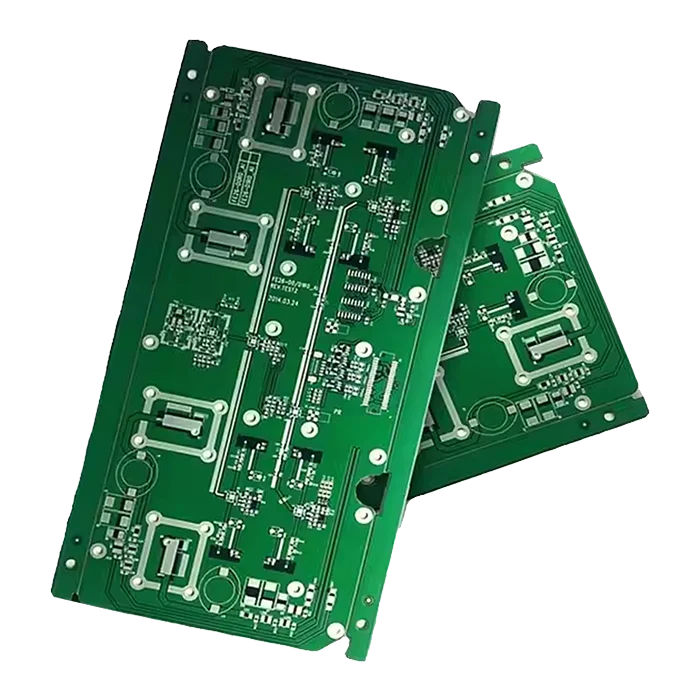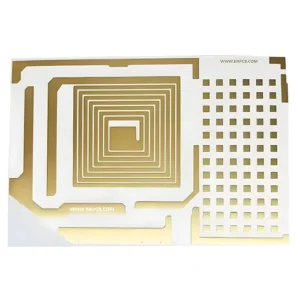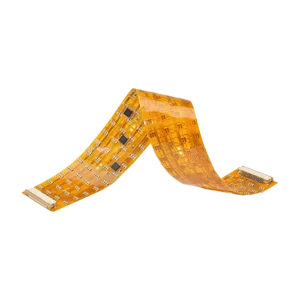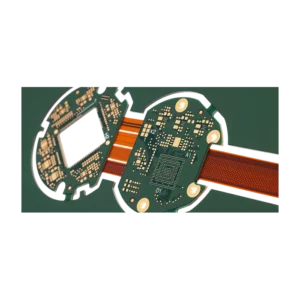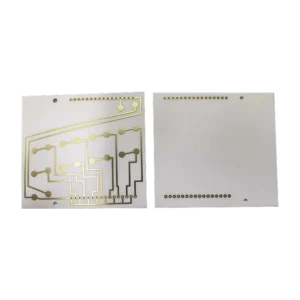Rigid polyimide PCB
$26.50
Many PCB manufacturers usually choose cost-effective FR-4 materials to manufacture rigid circuit boards, while polyimide materials are favored in high-reliability applications due to their excellent heat resistance. Rigid polyimide PCB is made of reinforced polyimide laminates, which have good mechanical rigidity and can work stably under extreme temperatures. With Tg of 250℃and above, the PCB can easily withstand high-temperature processes such as lead-free soldering.
Shipping fee and delivery date to be negotiated. Send inquiry for more details.
Your payment information is processed securely. We do not store credit card details nor have access to your credit card information.
Claim a refund if your order is missing or arrives with product issues, our support team would deal with your refund within 24 hours.
| Layer Counts | 2L |
| Base Material | Polyimide |
| Board Thickness(mm) | 1.0 |
| Max board size(mm) | 570*1200 |
| PCB size tolerance | ±0.3mm |
| Min. Hole Size | 0.3mm |
| Min. Line Width | 4mil |
| Copper Weight | 1oz |
| Surface Finish | HASL |
| Certificate | UL, RoHS, ISO, and REACH |
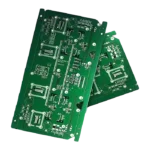 Rigid polyimide PCB
Rigid polyimide PCB
| 5 star | 0% | |
| 4 star | 0% | |
| 3 star | 0% | |
| 2 star | 0% | |
| 1 star | 0% |
Sorry, no reviews match your current selections
Questions & Answers
1.What copper thickness options does MOKOPCB offer?
MOKOPCB offers standard copper thicknesses from 0.5 OZ to 5 OZ, with custom thicknesses available upon request.
2.Can you list the PCB surface finishes you provide?
Sure! At MOKOPCB, we provide HASL, ENIG, ENEPIG, OSP, immersion silver, and immersion tin.
3.How do rigid polyimide PCBs compare to flexible polyimide PCBs?
Rigid polyimide PCB uses reinforced polyimide laminates and can not be bent, while flexible polyimide PCB is flexible.
4.What are the different types of polyimide PCB materials?
The common polyimide materials include low-flow polyimides, second-generation pure polyimides, third-generation polyimides, and filled polyimides, each designed for different applications.
5.What are the advantages of polyimide materials?
Polyimide materials offer excellent thermal stability, high durability, improved tensile strength, and higher chemical resistance.

